The travel and hospitality industry has become very competitive in today’s digital world. According to a Statistic Brain research, the internet was used by more than 148.3 million people to make reservations for travel, accommodations, and other activities. Another interesting stat from Nielsen found that, on average, 53 days are spent by consumers in checking 28 different travel and hotel websites over a period of 76 online sessions. Among this, more than 50% of them checked social media sites for tips related to travel and hospitality.
A martech tool such as a Customer Data Platform (CDP) can assist in building a rich profile for each traveler. It does this by aggregating and unifying user data across various disparate sources. The unified data helps in building a single user view for each individual user that gives valuable insights about the user’s online behavior, past purchases, preferred marketing channels, etc. Based on these insights, hospitality marketers can tailor personalized campaigns on the preferred channels and devices of users in real-time.
Here are 6 CDP use cases that hospitality marketers can implement for their respective companies:
6 CDP Use Cases for Hospitality
1. Rooms Unavailability
A new user visits a hotel’s website, checks the room availability for a particular date, and finds that the hotel is packed for those dates. A browser push notification showing the available dates at a slightly lesser price can enable him to complete the booking. Here, as the user’s real-time activity is recorded in the CDP, the hotel marketer can reach out to him with an attractive offer at the right time.
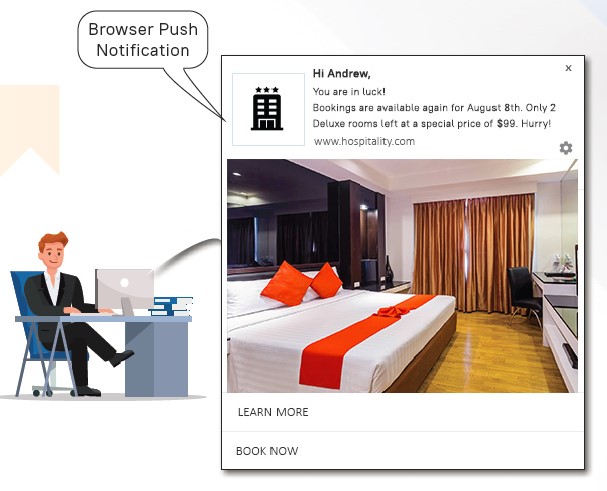
2. Up-Sell/Cross-Sell
An existing customer whose PII (Personally Identifiable Information) is stitched to his profile on the CDP visits a hotel’s website. Based on his historical purchases and transactional behavior, the website homepage banner or an onsite notification can be hyper-personalized with exclusive up-sell/cross-sell offers.
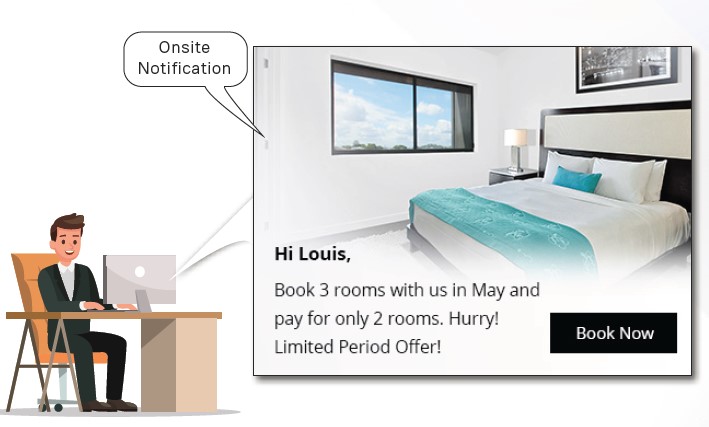
3. Complete Booking Reminder
A user drops off from completing his booking at the final checkout page. He can be urged through a personalized reminder to complete the booking via various marketing. The CDP plays a major role in notifying the marketer about the user’s online behavior in real-time. Such users can be immediately urged to complete their booking with a personalized message on their marketing preferred channels.
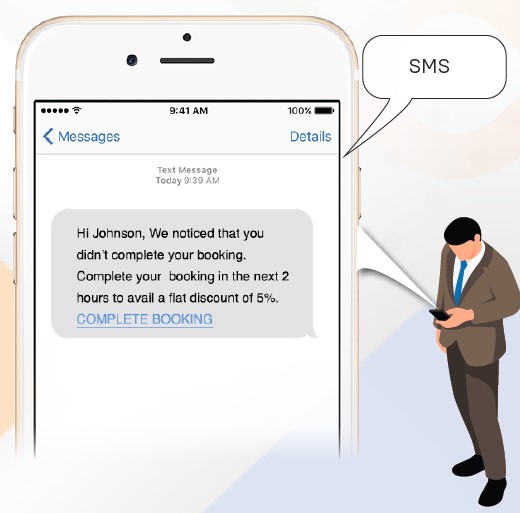
4. Third-Party Website Visit
A customer visits a third-party website and books international flight tickets. She later receives a personalized hotel booking offer via email or an onsite notification based on her activity on the third-party site. Here, the CDP assimilates third-party data from the website and enriches the single customer view that the hotel marketer has of the user. This insight allows the marketer to tailor contextually-relevant messages to the customer that can help increase conversions.
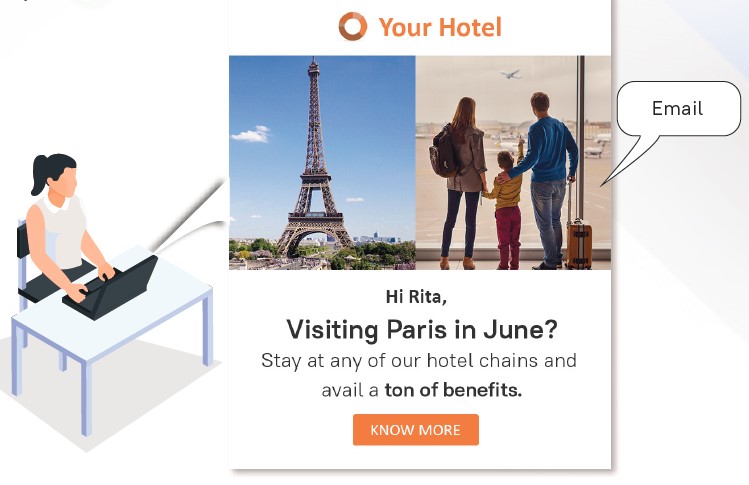
5. Encourage Repeat Bookings
A customer who previously booked a stay with the hotel can be reminded to book again with an attractive offer. This can be done via a personalized email or a homepage banner. As the CDP already has the details of the customer’s past purchases, the hotel’s marketers can target the customer with a hyper-personalized offer that can help boost online conversions.
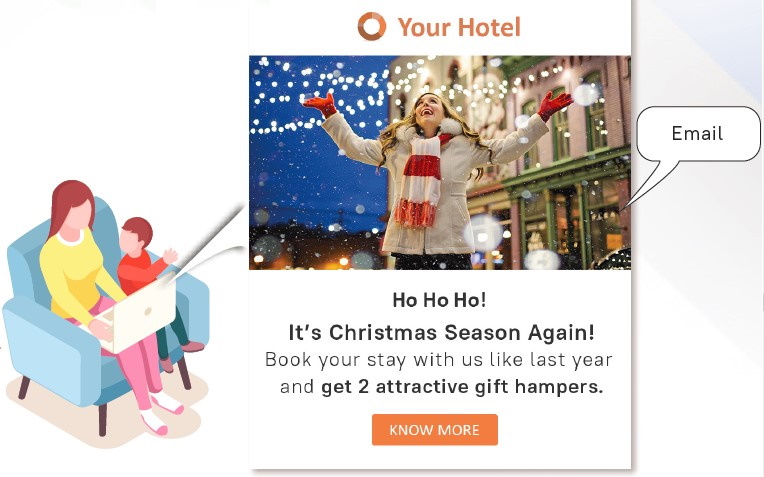
6. Offline-Online Integration
Customers are often found to be enquiring at the hotel reception via call or in-person about various ad hoc services such as sightseeing. These customers can be sent a personalized email regarding their enquiry and asked to complete the booking online. Here, the CDP easily aggregates offline user data and enables the marketer to target the customer with a 1:1 personalized offer online that increases the engagement rate.
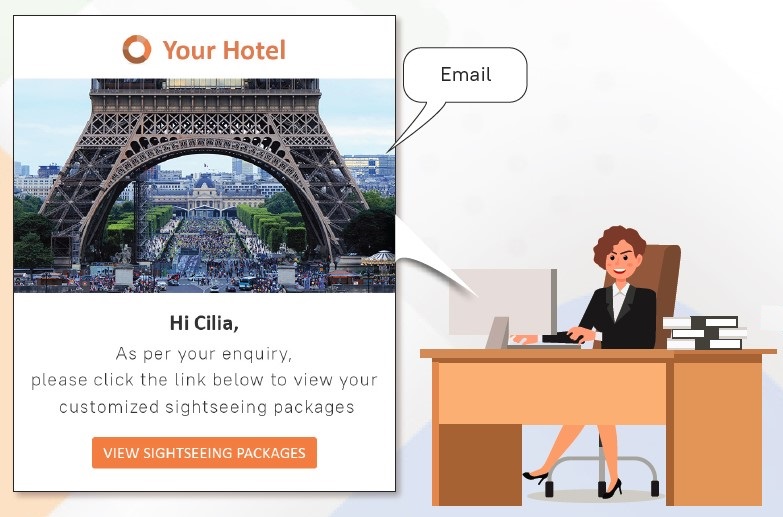
Get access to 14 more CDP use cases for the hospitality industry by downloading the following e-book:
DOWNLOAD E-BOOK: 20 CDP USE CASES FOR HOSPITALITY
By Bijoy K.B | Senior Associate Marketing at Lemnisk

Leave a Reply